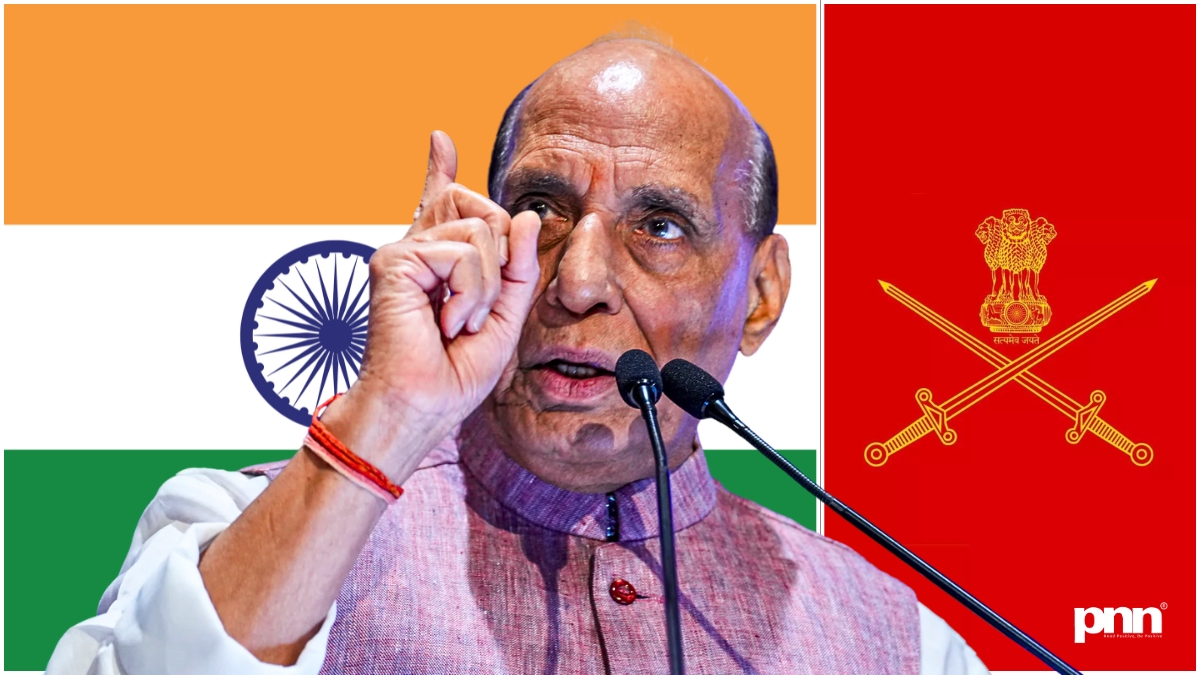New Delhi [India], August 30: Raksha Mantri Shri Rajnath Singh isn’t mincing words: India can’t beg for weapons and call itself secure. From Operation Sindoor to home-built warships, the defence minister made it clear, self-reliance isn’t a choice, it’s survival.
Operation Sindoor: Brief War, Amazing Prep
At the Delhi conclave on “Warfare in the 21st Century,” Shri Rajnath Singh pointed straight at Operation Sindoor. What looked like a brief clash with Pakistan was actually years of planning, training and betting on homegrown kit. The strikes weren’t just about taking out targets; they were proof that India’s forces, using indigenous weapons, can act fast and finish the job.
“Victory and defeat play out in days. But the prep takes years,” Shri Rajnath Singh said, crediting the armed forces’ reliance on Indian-built systems.
Sudarshan Chakra Mission: Air Defence For A New Era
Raksha Mantri called the Sudarshan Chakra Mission a “game-changer.” The plan: within a decade, shield India’s critical sites with advanced air defence tech, both defensive and offensive.
He flagged last week’s DRDO milestone: an indigenous system that knocked out three targets at once. Early days, yes, but a serious step toward making India’s skies too hot for any intruder.
Warships, Engines, And The Big Push
“All our warships are now being built in India,” Shri Rajnath Singh declared, reminding the audience about stealth frigates INS Himgiri and INS Udaygiri. Both are loaded with advanced sensors and weapons, and both were built here, not abroad.
Next on the list? Aero-engines. For decades, India struggled to build powerful aircraft engines. Now, the minister says, the prep is done and ground-level work begins. It’s no longer a question of if. The new question: how soon?
Defence Corridors: Up & Tn As Engines Of Growth
Shri Rajnath Singh highlighted the Defence Industrial Corridors in Uttar Pradesh and Tamil Nadu as the hubs where “Make in India” isn’t a slogan but a factory floor reality. With clusters of R&D and manufacturing already operational, the model could spread to other states.
Exports prove the point. In 2014, India’s defence exports barely touched ₹700 crore. Today, they’re brushing ₹24,000 crore. That’s not just PSUs. Private players, start-ups, and even student innovators are on the board.
From Import Lists To Home Builds
The government’s Positive Indigenisation Lists have blocked over 5,500 items from being imported. Out of these, 3,000 are already being produced locally. Shri Rajnath Singh’s pitch: less dependency, more capability.
And it shows in numbers. Defence production has crossed ₹1.5 lakh crore, with one-fourth coming from private industry. Raksha Mantri called this “Defence Economics”, not mere spending, but job creation, innovation and industrial lift.
Breaking The Colonial Hangover
Remember the loss-making Ordnance Factory Board? Raksha Mantri reminded the audience it’s now profitable, with ₹1,600 crore in the green after restructuring. He called it “freedom from a colonial mindset,” a swipe at the inefficiency India carried since British times.
Reforms don’t stop at factories. The FDI cap in defence is now 74%. Licensing has been simplified. Start-ups are getting space through iDEX, a platform where the government co-funds innovation.
Shri Rajnath Singh’s message to young Indians: stop building apps only for food delivery, start building tech that can defend the nation.
Women At The Frontline
The minister also hailed women officers now flying fighter jets, sailing ships and holding ground at icy borders. For the armed forces, still one of India’s most conservative institutions, that’s a revolution.
Global Pressures, Indian Resolve
“We seek no enemies, but we will not compromise our interests,” Shri Rajnath Singh said. Farmers, small businesses, ordinary citizens, he linked defence directly to everyday welfare.
The world can squeeze, but India, he claimed, emerges stronger under pressure. He also gave a reminder of Pokhran’s lessons. Sanctions after 1998 forced India to build its own radars, missiles, drones and carriers. Today, he argued, India can defeat adversaries “within minutes.”
The Final Pitch: Self-Reliance As Survival
From terrorism to pandemics to wars in Ukraine and the Middle East, Raksha Mantri said the world has shown one clear truth: dependence is dangerous. “Aatmanirbhar Bharat in defence is not a slogan, but a roadmap,” he insisted.
India, he added, will not only secure itself but become a trusted partner for others. A decisive power in the 21st century, that’s the goal.
Also Read: India-Japan Economic Forum: PM Modi’s Big Push for Business

